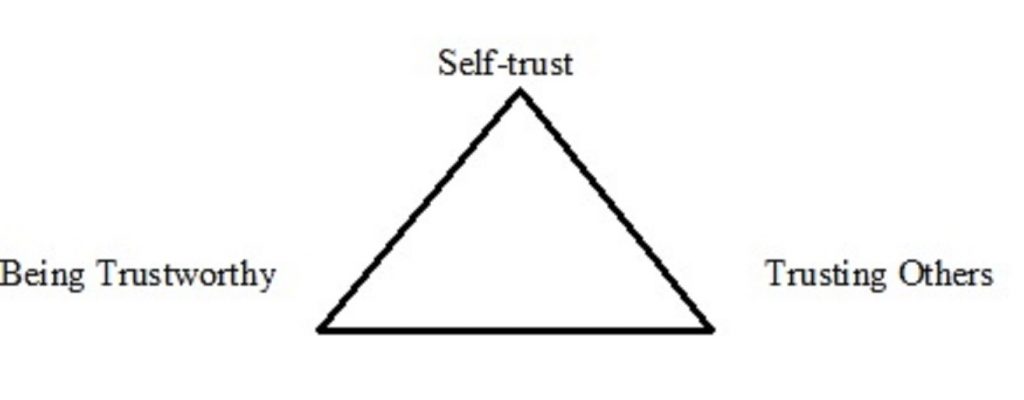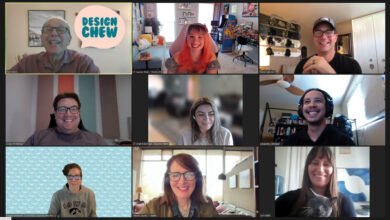Is workplace trust an issue? Imagine yourself in the following three situations and consider what you would do or how you would feel:

Situation 1: You own a digital graphics shop and you’re introducing a new item that, by all indications, will be a “sure-fire hit.” It satisfies many of the desires of your customers and resolves many of the complaints you’ve heard about similar products. Your intuition tells you to price the product higher than what is currently in the marketplace for similar products because of its superior quality. In addition, you believe your competitors have “left money on the table” by selling at low prices while the product’s demand is high. However, your sales staff strongly disagrees. They want you to price it at or below the market average in order to ensure a successful product launch. What do you do?
Situation 2: You’ve literally outgrown your present business location and plan to move to a larger one in four to six months. If you would ever seriously consider moving, now would be the time. You’ve discovered a much larger facility that is a 40-minute drive away and the price is a steal. Everything about the place is perfect with the exception of its distance from the majority of your employees’ homes. The commute will add over an hour of driving time each day for most of your key personnel. When and how do you handle disclosing or discussing your intentions to relocate to the new facility with your multi-talented workforce, suspecting that many of them may quit to find jobs closer to their homes?
Situation 3: You have developed a comprehensive customer database, complete with names of key contacts, sales history, customer demographics and profit data. To date, only you and your sales manager have access to the information. You are thinking of sharing your files with your sales force with the idea of having them make more informed decisions about prospecting, pricing and territory management. You are keenly aware that many of your competitors have been trying to lure away your accomplished sales representatives with lofty salaries and generous bonus packages. How do you feel about making available such sensitive market intelligence to people who-while they could really benefit from it-may leave and use the information to sell against you?
The paradox of trust
Have you ever heard someone say, “I will initially trust anyone, until they give me a reason not to?” What a bunch of hooey! About the only beings that trust unconditionally from the outset are infants and golden retrievers. And from the very first time either baby or puppy becomes the victim of misplaced trust, they will hesitate in extending that level of trust to anybody from that point forward.
Sure, we would all like to think in altruistic terms, but the reality is that others must first earn our trust rather than being given it automatically.
Carole Dudley and Dr. Colleen Cooper, organizational development consultants in Michigan, have studied and lectured on the phenomenon of building trust in the workplace. They believe trust is the foundation of a healthy business environment. Conversely, the lack of trust is like a cancer that permeates the workplace, causing productivity to deteriorate and people to suffer. The power of trust is pervasive, yet invisible. No one definition can describe it, but everyone knows when it is, or is not, present at a particular company.
Understanding the “Trust Triangle”
Dudley and Cooper have developed a model that illustrates the relationship between trust and people’s behavior. That model is called the Trust Triangle. (See image)
A triangle is used not simply because it’s a convenient way to deal with three separate elements, but to demonstrate the extent to which the individual elements in such an arrangement are equally important, equally interdependent.
In Situation 1, you may have gone with your gut feeling and dictated the higher price for your new product. Treating your staff as internal customers, you may have tried to “sell” them on the idea of launching the product at the higher price, leaving the possibility open to adjusting it after a few months if sales do not meet forecast. Listening to your inner wisdom in this way is an example of having a high degree of self-trust.
If your sales staff was persuasive in getting you to second-guess yourself, perhaps your self-trust is in need of bolstering. In such a case, you may have rationalized your decision to lower the price as a demonstration of the way you’re able to trust others. But be honest with yourself as to why you really decided the way you did. Who is most qualified to set profitable prices for your products-you or your sales force? Self-trust begins with consciously understanding your values, beliefs and convictions in the face of opposition. If you don’t trust yourself, how can you conceivably trust others or have others see you as trustworthy?
Stephen Covey, noted author of “The Seven Habits of Highly Effective People,” writes: “Everyone has the wisdom, knowledge and answers within themselves. Personal trust is the foundation of character or personal integrity.”
Here are several suggestions Dudley and Cooper offer to further develop self-trust:
- Set aside quiet time to listen to your inner thoughts. That “voice” will be calm and genuine. Record those thoughts in a journal.
- Ask yourself often: “What outcome do I want?” “Am I looking at the big picture?” and “Are my actions consistent with my set of values?”
- Become more aware of the link between your intentions and your feelings and actions. Voice your intentions out loud, but in private. Hear your voice as you try to convince yourself of your thoughts.
Being trustworthy, and trusting others
In Situation 2, many business owners would wrestle with the issue of discussing a business decision with their employees while maintaining a degree of trustworthiness. The inner struggle might include the following questions: When is the “right” time to announce an operational change in a way the staff will accept? How can I clearly explain what I hope to achieve and still respect the needs of others? I know I will need my employees’ insight and perspective to make the right decision. Will I stir up a “hornet’s nest” by just hinting at the possibility of moving to a larger place?
Situation 3 presents an equally sensitive issue-trusting others. How much of the lifeblood of your company are you putting in jeopardy if you disclose confidential information to the very people who could have the greatest impact in your success? Do you give access to just some and withhold the information from others? What are the best and worst things that could happen? Does the potential gain outweigh the potential risk?
As I am sure you’ve figured out by now, there are no clear-cut answers to the scenarios offered. And, obviously, they’re only three out of the infinite variety of situations that confront business owners and managers every day.
When faced with such gut-wrenching challenges, we occasionally commit the mortal sin of not taking the time to ask the tough questions or seeking the wisdom of mentors or advisors. When we fail in this way, we’re demonstrating not only a weak ability to trust others, but a lack of trustworthiness.
Dudley and Cooper call this issue putting the “US” back in TRUST, and offer a variety of ways we can come both to trust others and to become trustworthy ourselves:
- Get to know people as people-their hopes, dreams, fears and expectations. Listen carefully to the tone of their voices and observe body language; place less importance on the actual words they speak.
- Show leadership by being visible. Yogi Berra-former NY Yankee catcher, Baseball Hall of Famer and notorious coiner of apropos, yet distorted, phrases-once noted wisely that, “Much can observed by just watching.”
- At first, seek to understand. Spend more time asking questions than talking.
- Deliver on your promises, becoming predictable and dependable across situations and over time, and demonstrate sincere concern by expressing empathy … not just in words, but in actions.
- Audit your company’s “trust account,” wherein “deposits” are the things others do that inspire you to trust them, and “withdrawals” are those things they do that lead to mistrust and doubt in your eyes.
- Consider what your own “trust account” statement would look like based on your actions in the eyes of others.
An old adage, revisited
I’ve often stated the belief that people buy from people who they like, trust and with whom it is convenient to do business. Try treating your employees as if they were your customers, by seeking each day to understand their needs and motivations so they can better “buy into” your company’s vision.
Given the intricacies of self-trust, being trustworthy and trusting others, is it any wonder why trust is a critical issue in today’s workplace? On a daily basis, people’s words and actions can bring trust into question. With a shrinking workforce over the past fifteen years, and with a volatile economy, businesses have turned to addressing the issues surrounding empowerment and motivation, both of which are built on trust.
The challenge of understanding trust in the workplace will not get easier going forward. Take the time now to become a student of trust, before situations like the ones described above present themselves and you’re forced to take a “crash course” on its wisdom and power. Good luck.



